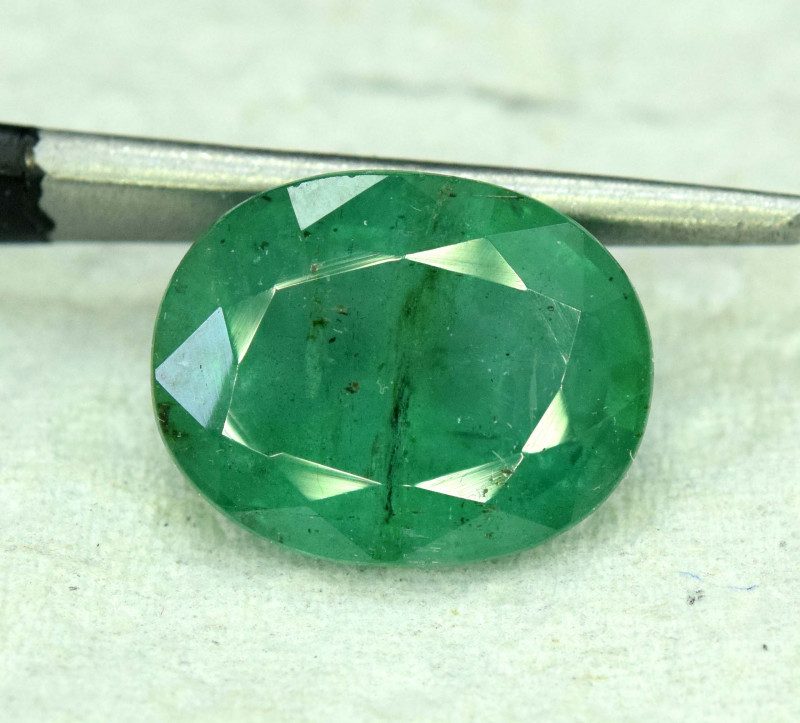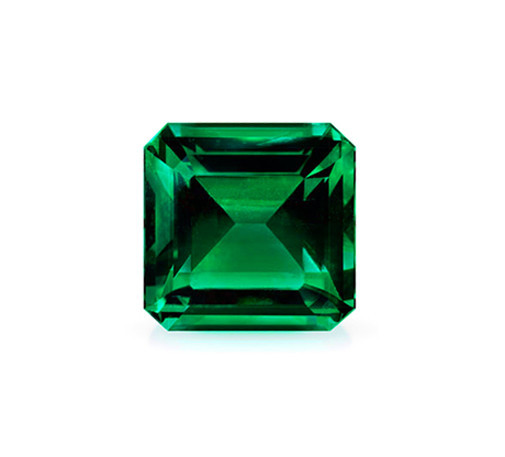
Published at 5th Mar 2019
Modified at 2nd Aug 2023
Are Emeralds Clear or Cloudy?
 Emeralds are the precious birthstone of May and symbolize everlasting love. This gorgeous stone is also the mascot for Spring. The most unique quality of an emerald is it’s radiant signature green color. In fact, emeralds stand out among a sea of stones, sometimes emitting a glint of blue in the light.
Emeralds are the precious birthstone of May and symbolize everlasting love. This gorgeous stone is also the mascot for Spring. The most unique quality of an emerald is it’s radiant signature green color. In fact, emeralds stand out among a sea of stones, sometimes emitting a glint of blue in the light.
However, it takes an acute trained eye to notice what makes an emerald valuable. One thing to consider when browsing emeralds is the clarity and quality of the stone. What you’ll find is a wide range of emeralds in varying hues. The important thing to keep in mind is that the color of the stone is linked to its clarity, and in turn its value.
Emerald Clarity and Inclusions
Despite the appearance of a seemingly perfect emerald, inclusions are common and sometimes untraceable to the naked eye. An emerald inclusion creates a mossy effect that resembles a garden. For this reason, they’re occasionally called by the French term for garden: “jardin.”
When an earthquake or volcanic eruption occurs, emeralds are born. However, due to the conditions of their conception, they are fragile and can break under too much pressure. Too many inclusions can cause an emerald to lighten in color, making it appear opaque or cloudy.
So, are Emeralds Cloudy?
As you might’ve guessed—it depends entirely on the emerald. Flawless emeralds are not cloudy, but are highly transparent or clear. These pure emeralds are desired in the jewelry marketplace, and most often come from Brazil, Zimbabwe, Pakistan and Columbia. While most emeralds have minor flaws, the most transparent ones are used for fine jewelry pieces and are much rarer than cloudy Emeralds. 
Alternatively, opaque emeralds will appear more cloudy and are incorporated into jewelry as beads or pendants. Opaque emerald stones are still beautiful, and can even take on an attractive turquoise hue. These stones are much more common and command a lower price than their fine counterparts. 
Emerald Color
Emeralds are often used as a narrative to describe gorgeous green eyes. While green is no doubt the most commonly referenced color of emeralds, desired emeralds sometimes emit a slightly blue color. For an emerald to truly hold value, it needs to be clear and nearly transparent. The transparency of an emerald depends on its inclusions, or flaws.
How does emerald get its striking green color? We can thank a combination of trace elements including vanadium, chromium and iron that make emeralds green. However, there are some emeralds that appear somewhat cloudy. These stones are called opaque emeralds, which have a much lighter shade of green color.

Emeralds are a type of beryl stone, however they turn green do to the chromium in their composition. Emeralds are made of a crystal matrix consisting of multiple elements. If an emerald contains too many elements, the color gets diluted or cloudy and can also appear too yellow or blue. As a result, the value of the stone decreases significantly.
To summarize, the transparency and crystal matrix determines the clarity or cloudiness of an emerald stone. Multiple inclusions will turn the stone cloudy, however opaque emeralds are still popularly used in jewelry. Due to diversity in quality and clarity, emerald stones run the gamut in pricing.
To find your emerald stone, browse our wide variety of Emeralds
Search the Gemstone Encyclopedia
Related Auctions
Related Articles
There are so many tools on the market for testing a gemstone, but what are the main tools required for simple analysis. Lets look at four tools for gemstone testing.
4th Mar 2020
Gem Rock Auctions has one of the largest range of Certified Gemstones online. Browse this list of approved gemstone testing laboratories.
24th Jul 2018
Quartz and Topaz are two of the most common minerals on the planet. They also look very similar. Let's look at some properties of them and compare Quartz and Topaz.
23rd Oct 2018
Latest Articles
Yugawaralite is a rare colorless, white, or pinkish zeolite crystal named for its discovery in Yugawara, Japan. Here we uncover the multifaceted history, properties, prices, and uses of yugawaralite.
24th Mar 2025
Simpsonite is a lesser-known mineral known on the gem market for its durability, yellow-orange color, and rarity. Discover all the properties, uses, prices, and history of simpsonite.
3rd Mar 2025
Kurnakovite is a colorless crystal related to inderite and rarely faceted but known among collectors. Explore the mineral traits, history, prices, and more in this kurnakovite guide.
17th Feb 2025
Article Categories
How To's is where you will find helpful articles from gem Rock Auctions on how to cut gemstones, select gemstones and buy gemstones.
9 Articles





